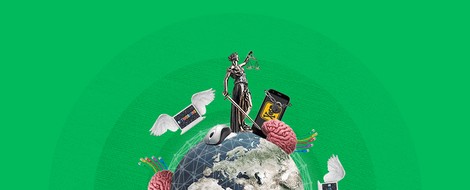Your podcast discovery platform
Curious minds select the most fascinating podcasts from around the world. Discover hand-piqd audio recommendations on your favorite topics.

piqer for: Global finds Technology and society
Prague-based media development worker from Poland with a journalistic background. Previously worked on digital issues in Brussels. Piqs about digital issues, digital rights, data protection, new trends in journalism and anything else that grabs my attention.
Wikileaks Strikes Again: What You Need To Know About The Vault 7?
Julian Assange's Wikileaks has released a new trove of classified documents, under the title Vault 7, about the CIA’s cyberweaponry. Don't think 'here we go again' and put it out of your mind. Instead, get to know the essentials, because this is exactly what the WIRED article provides.
Packed in a comprehensive Q&A format, the article outlines the most relevant and so-far known information about the CIA revelations. As explained, Vault 7 contains over 8,700 documents and files, which constitutes the largest leak in the entire history of the US spying agency. All of the published documents hold information about cyber weapons, such as malware and spyware, all developed by the US governmental hackers.
"Two of the most significant documents show the CIA's iOS and Android exploits ... However, it isn't just mobile phones that are covered in the documents, web browsers such as Chrome and even smart TVs have previously undisclosed security vulnerabilities discussed," the article reads.
Suggestions that encrypted messaging apps are vulnerable, that the CIA's malware can work against most well-known anti-virus programs, or that vehicle systems and the Internet of Things may be targeted by the CIA in the future, top the Wikileaks list of revelations.
Keep your eyes open and expect more reading to come, as the majority of documents still "remain unread and unveiled by journalists", while Wikileaks has promised further disclosure of information in the future.
"This extraordinary collection, which amounts to more than several hundred million lines of code, gives its possessor the entire hacking capacity of the CIA," the articles quotes Wikileaks.
At the same time, stay sharp-eyed and avoid jumping to conclusions, as the authenticity of the documents so far has not been confirmed.
